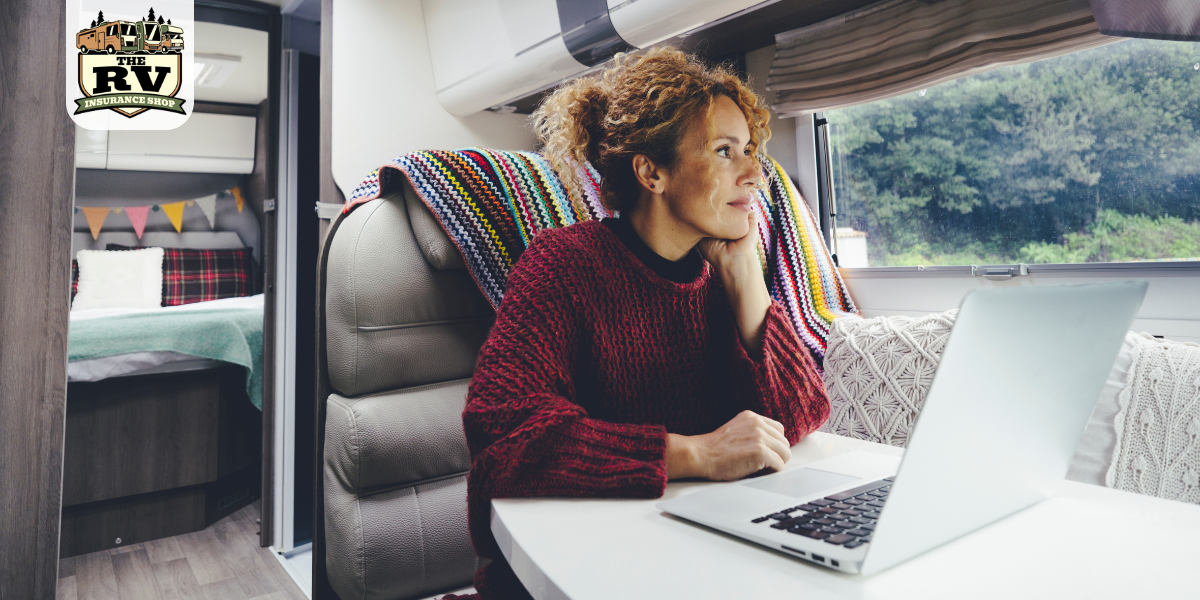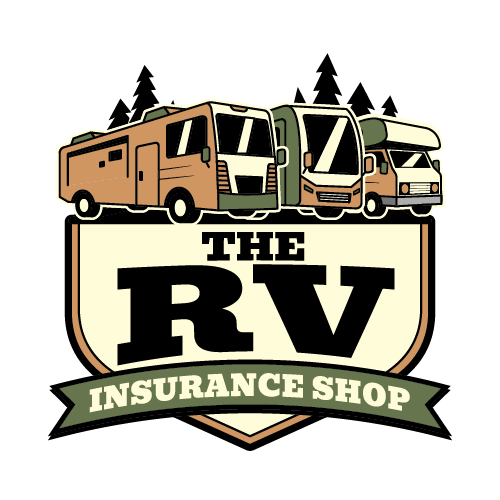How to Insure an RV Used for Remote Work: Comprehensive Guide

The shift to remote work has revolutionized how people live and travel. For many, it’s no longer about being tied to a single location; instead, the ability to live and work from an RV offers the perfect mix of adventure, freedom, and productivity. This growing lifestyle trend, often referred to as the “digital nomad” movement, allows people to take their home office on the road. But, as with any major asset, protecting your RV—and everything inside it—is essential, especially when your RV serves a dual purpose as both your home and office.
Insuring an RV that doubles as your mobile workspace requires more than just a standard RV insurance policy. Remote workers have unique needs that must be addressed to ensure they’re fully protected, from their expensive business equipment to liability coverage in case they host clients or coworkers. Here’s everything you need to know to ensure that your mobile workspace is comprehensively insured.
Coverage Essentials for Remote Work RVers
When your RV acts as both your home and office, you need to think beyond traditional RV insurance policies, which typically cover damage from collisions, theft, or weather-related incidents. Instead, you’ll need to ensure your policy offers protection for your work-related equipment, office setup, and the liability risks that come with meeting others inside your mobile office.
1. Business Equipment Coverage
If you work remotely from your RV, chances are you rely on expensive work equipment—laptops, cameras, monitors, and even specialized gear like drones or video production tools. Standard RV insurance policies may not provide adequate protection for these items, especially if they are damaged, stolen, or lost while you’re on the move. In fact, many traditional RV insurance policies only cover personal belongings up to a certain amount, often not including business-related items.
For example, imagine you’re working from your RV parked near a national park, and a severe storm rolls in, damaging your RV and your electronics. Without specialized business equipment coverage, you might be left replacing these costly items out of pocket, causing major disruptions to your work.
To ensure full protection, make sure your insurance policy includes an endorsement or rider specifically for business equipment. This coverage will not only protect against theft and damage but may also cover the loss of income if your equipment is destroyed or unusable for an extended period.
2. Liability Coverage
Liability is another crucial consideration for RVers using their mobile space as an office. If you host clients, coworkers, or even collaborators inside your RV for meetings, presentations, or work sessions, the risk of someone getting injured exists. Liability coverage protects you in the event of accidents, such as someone tripping on a step in your RV, falling, and injuring themselves.
Standard RV liability insurance covers injuries caused by accidents while driving or operating the RV, but additional coverage might be needed to extend protection to injuries that occur while the RV is parked and used as a business space. Without this extra coverage, you could be held personally responsible for medical bills or even legal fees if the injured party sues for damages.
3. Full-Time RV Coverage
If your RV is more than just a vacation vehicle and you live in it full-time, it’s worth considering full-time RV insurance. This coverage works similarly to a homeowner’s policy, providing more comprehensive protection, especially for remote workers who spend most of their time in their RV. Full-time RV insurance typically offers higher liability limits, personal property protection, and additional living expenses if your RV becomes uninhabitable due to damage or repairs.
Real-World Scenario: Why Comprehensive Insurance Matters
Imagine this scenario: You’re parked at a beautiful, remote location—perhaps somewhere along the California coast or the Arizona desert—working on an important project for a client. The nearest town is miles away, and you’re immersed in the peace and quiet of nature. Suddenly, a power surge from your solar setup damages your expensive work laptop and monitor. Without the right coverage, you’re left scrambling to replace these essential tools, which could result in lost income and delayed deadlines.
Without comprehensive insurance that includes business equipment coverage, you would likely have to pay out-of-pocket to replace the damaged items. This could not only disrupt your work but also jeopardize client relationships, depending on how critical the project was. A policy that covers business equipment and losses due to equipment failure or damage can save you thousands of dollars and keep your work on track, even when the unexpected happens.
Another example: You’ve set up a meeting with a client inside your RV at a national park. They trip while entering your RV, breaking their wrist. Without extended liability coverage for injuries that occur in your mobile workspace, you could be financially responsible for their medical expenses and any legal actions they decide to take. The right liability insurance would protect you from these costs, ensuring that your mobile office remains both functional and financially safe.
Steps to Ensure Comprehensive Coverage
So, how do you go about ensuring your RV is fully protected while you work remotely? Here are some critical steps to take:
1. Evaluate Your Needs
Begin by taking an inventory of your work-related equipment. Make a detailed list of all the gear and devices you rely on for your remote work, and assess their total value. Items like high-end laptops, external monitors, ergonomic chairs, video conferencing tools, and even internet equipment (satellite dishes, mobile routers, etc.) should be included in your evaluation. This will give you a clearer idea of how much coverage you’ll need for your business equipment.
2. Talk to an Insurance Specialist
Not every insurance provider understands the specific needs of full-time RVers who use their vehicles for remote work. It’s crucial to find an agent or provider that specializes in this lifestyle. A specialist will help you understand the nuances of RV insurance policies and ensure that you’re not left with coverage gaps. They can also help you find discounts if you bundle your policies (e.g., bundling RV insurance with auto or homeowner’s insurance).
3. Regularly Review Your Policy
Your insurance needs may evolve as your remote work setup changes. For example, you might upgrade your equipment, add solar power, or install security systems. It’s important to review your insurance policy regularly, especially when making any significant changes to your workspace or lifestyle. Make sure your policy reflects the current value of your assets and the type of coverage you need for your mobile office.
4. Consider Additional Protections
Beyond business equipment and liability coverage, there are other add-ons you might want to consider:
- Emergency Expense Coverage: This will help cover temporary lodging and food costs if your RV becomes uninhabitable due to damage or repairs, ensuring you can still work while your RV is being repaired.
- Roadside Assistance: Given that you’re likely traveling often, having reliable roadside assistance will protect you in case of mechanical issues, flat tires, or other unexpected problems that could leave you stranded.
- Cyber Liability Insurance: If you handle sensitive client information or data from your RV, cyber liability insurance can protect you against data breaches and other cyber risks.
Insuring Your Mobile Workspace
Insuring an RV used for remote work involves more than just covering a vehicle—it’s about protecting your livelihood. As more people embrace the digital nomad lifestyle, the need for specialized RV insurance continues to grow. By taking the right steps to secure your mobile office, including evaluating your needs, finding the right insurance provider, and reviewing your policy regularly, you can work and travel with peace of mind.
Whether you’re exploring the mountains, desert, or coastline, your mobile workspace should be a source of freedom, not stress. With comprehensive RV insurance tailored to your remote work needs, you’ll be ready for any bumps in the road, both literal and figurative. After all, with the right protection in place, your RV can truly be a home—and office—on wheels.
This expanded version brings in real-world examples and adds practical advice to give remote workers and RV owners a clearer understanding of the importance of the right insurance coverage.

